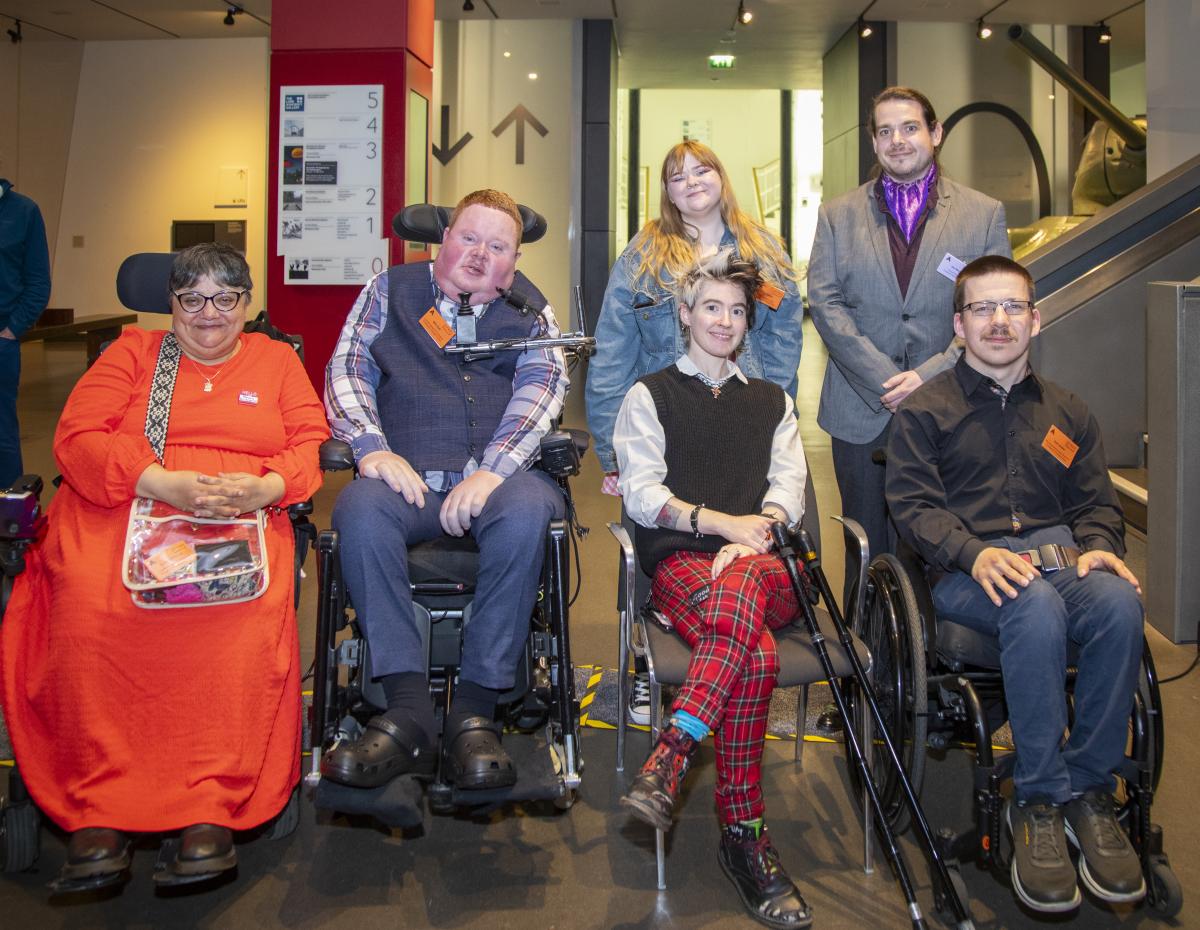
Reflections and actions from Curating for Change and Curating Visibility led by Accentuate at Screen South
Accentuate creates and delivers projects that break new ground, for and with, D/deaf, disabled and neurodivergent people within the cultural sector. As such we are actively delivering programming within the Disability Livelihood and Employment focus of this year's UK Disability History Month. We believe it is important to challenge misconceptions that disabled people can’t work, don’t work or aren’t able to work within the museums sector; highlighting, challenging and changing those barriers which disabled people face to employment.
Treating everyone the same to ensure equality has to be one of the biggest misconceptions employers have when approaching recruitment. This practice has actively blocked D/deaf, disabled and neurodivergent museum professionals from entering the heritage sector. These well-meaning intentions to deliver fair and robust processes in recruitment clearly aren’t working. Arts Council England statistics show only 4% of those working in museums are disabled, despite forming 19% of the working-age population.
So why is this important? Without D/deaf, disabled and neurodivergent people working in museums, disability history narratives and collections cannot be authentically represented and curated within our nations institutions.
With this call to action, two Accentuate programmes, Curating for Change and Curating Visibility were formed, offering 14 Fellowship opportunities and 8 Traineeships with museum partners across England. We believed that our D/deaf, disabled and neurodivergent Fellows would bring unique and fresh insights to the cultural workforce which would be hugely valuable to the museum sector, and this has been proven to be true. Our Fellows actively researched, re-interpreted and displayed hidden disability histories within our partner museum collections in collaboration with communities with lived experience of disability. We found that these co-produced outputs meant our Fellows were able to interpret collections in ways non-disabled curators might not have been able to; reframing language, bringing a new lens to content and contemporary collecting. The Fellows also enabled museums to engage with audiences who had otherwise been disengaged due to not seeing themselves represented within their exhibitions, collections and workforce.
Our record visitor figures – 423,361 – for Curating for Change Fellowship exhibitions, trails and displays demonstrated that disability history is far from a niche narrative, but rather a universal experience which features through time and is depicted through a range of museum objects, beyond the “obvious” disability aids. This work was made possible through the National Lottery Heritage Fund and Art Fund.
Through introducing an equitable approach to recruitment, retention and career development for D/deaf, disabled and neurodivergent museum staff, our aim was to demonstrate that any museum, whatever their organisational structure, could and should adopt key changes in the way in which they recruited staff. Thereby encouraging a greater likelihood of attracting more diverse staff. Our approach advocated for a range of access-first recruitment resources in Easy Read and BSL, questions in advance at interview, and access-riders as standard for all new staff. A complete list of practical tools implemented are available here.
From inception it was evident that Accentuate, a programme delivered by the organisation Screen South, would be in a unique position to enact a more equitable approach to recruitment, where the museums themselves might be restricted by their own processes. Historic recruitment processes at our partners require a longer term sustained review and dismantling of exclusionary practices. Collaborating with hiring managers directly and senior leadership at our partner museums has, however, meant that this advocacy has begun internally with many adopting our approaches within their sphere of influence and prompting reviews of practice.
Has this gone far enough? Well, no. Supporting Fellows with their next steps into the museums sector has thrown up some alarming practices and continued barriers to access. Regular setbacks in application and interview has knocked confidence and challenged resilience. Experiences like having access requirements (such as interview questions in advance) refused, and lack of step-free access to interview rooms leading to interviews being held in store cupboards, builds a picture that these vital voices and lived experience are not valued within the sector. Museums are now aware of the issues and should know that it is the law to make reasonable adjustments. We have also advocated for making applications to Access to Work, which is a resource to financially support the employment of D/deaf, disabled and neurodivergent staff members. So why is there still this reticence? We now need to see positive action in recognition of the value disabled people offer the museum sector, because without bringing these refreshed perspectives, museums are in danger of becoming more irrelevant and less responsive to the diverse communities they service.
Join Curating Visibility
Curating Visibility are now looking for 3 Fellows for placements at Barnsley Museums, Charleston and London Museum who identify as D/deaf, disabled and neurodivergent. For more information and how to apply: https://screensouth.org/events/curating-visibility-recruitment/
Closing date: Monday 25 November 2024.
